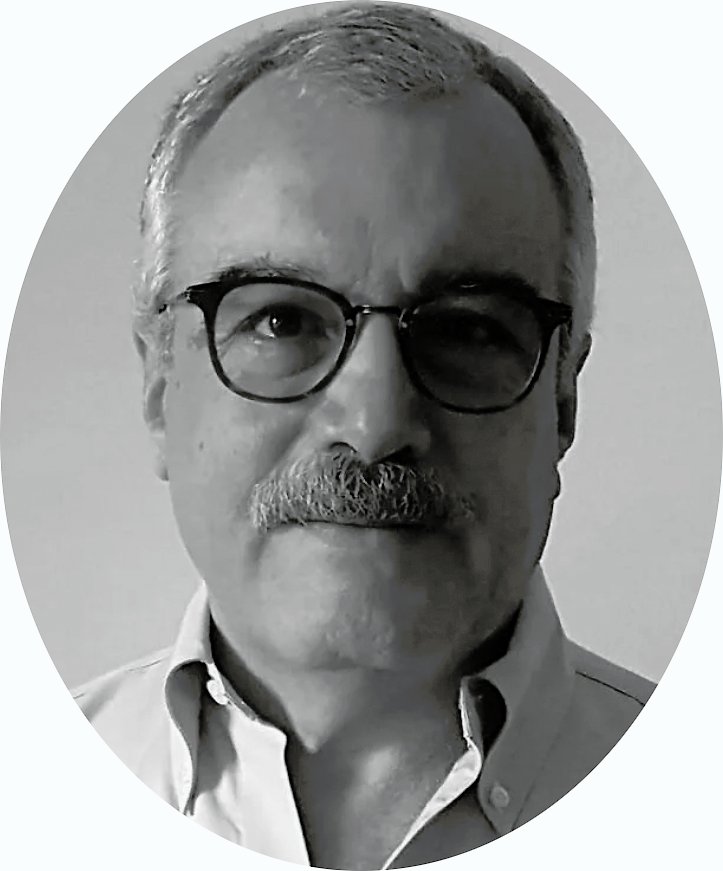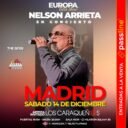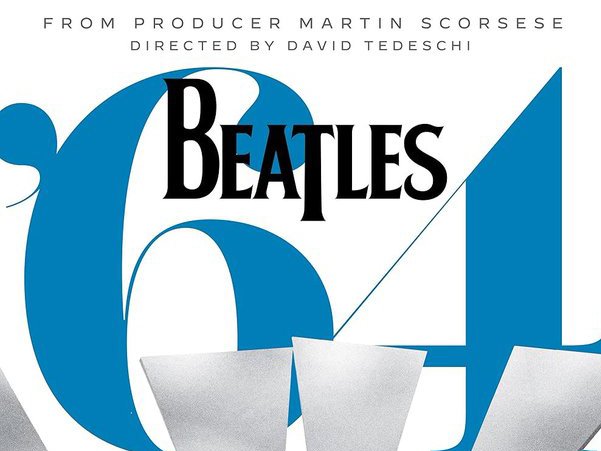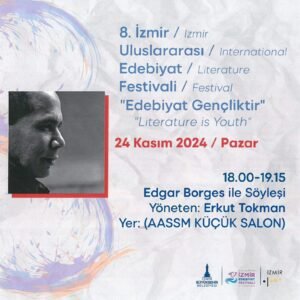La música tiene el poder de romper barreras y abrir mundos. Esta es la historia de cómo de niño, entre la censura en Egipto y los cambios culturales de Italia, encontré en Chuck Berry y los Beatles una puerta hacia la modernidad.
Anoche vi el documental titulado: Beatles 64, producido por Martin Scorsese, disponible en Disney Plus. Verlo fue un nostálgico viaje al pasado. Nací en Alejandría, Egipto, y gracias a la censura instaurada en un país que restringía la libre difusión de música extranjera, mi universo musical estaba limitado a una especie de santísima trinidad conformada por estas icónicas figuras:
Umm Kulthum, considerada la «Diva del mundo árabe», cuya voz poderosa y estilo inconfundible la convirtieron en una leyenda; Farid al-Atrash, un cantante, compositor y actor, que brilló por sus melodías románticas, y Abd el Halim Hafez, apodado «El cantante de los enamorados», cuyas baladas conquistaron millones de corazones.
Mi primer contacto con la modernidad musical llegó de forma inesperada. Mi hermano, quien era un niño talentoso con muchas habilidades manuales, había decidido abandonar sus estudios formales y buscar otras opciones. Por lo que mis padres lo inscribieron en la escuela técnico-industrial del Colegio Don Bosco, donde conoció a un joven egipcio de nombre Ahmad, con el que entabló amistad.
Recuerdo a Ahmad como un muchacho algo mayor que nosotros, siempre perfectamente peinado hacia atrás con un copete engominado del que se sentía muy orgulloso. Un día llegó a casa con algo que guardaba con mucha cautela: un pequeño disco de 45 rpm que, según explicó, había conseguido en el mercado negro. Con mucha prudencia, le pidió a mi hermano que lo pusiera en el tocadiscos a bajo volumen, temiendo los efectos de una censura que asfixiaba al país.

Chuck Berry
Tras subir el volumen poco a poco, pidió que le tradujéramos la letra, mientras movía los pies y meneaba la cabeza de una forma curiosa. Nosotros, entretanto, escuchábamos fascinados a un señor de nombre Chuck Berry cantando Johnny B. Goode. El título de la canción nos sorprendió tanto que nos pareció un error de escritura, algo que atribuimos al origen del disco. Esa mañana marcó el inicio de mi conexión con un mundo musical completamente nuevo.

The Beatles members (from left) John Lennon, Ringo Starr, Paul McCartney and George Harrison on the terrace of the Hotel Duomo where the press conference was held, Milan, 24 June 1965.
Pasaron los años y, en 1964, llegamos a Milán, donde vivían mi abuela y mis tíos maternos. Nuestro arribo a Italia fue accidentado. Mi padre, quien había sido imputado injustamente de un delito cambiario, se había tenido que quedar solo en Egipto esperando un juicio que probara su inocencia. Por fortuna, seis meses más tarde fue absuelto y se pudo reunir con nosotros.
En Milán, mi vida cambió completamente. Mamá me había inscrito en La Scuola Alessandro Da Fano, un colegio mixto judío, muy distinto al Colegio Don Bosco de Alejandría, que era católico y exclusivamente para niños. Los cambios que me tocó vivir en aquel año fueron abrumadores: un nuevo país, casi sin amigos y, en medio de una cultura completamente diferente.

Velódromo Vigorelli.
Recuerdo que en el colegio todos hablaban emocionados de un mismo tema: una banda británica y su arribo al país donde daría un concierto el 24 de junio de 1965 en el Velódromo Vigorelli. Mis compañeros planeaban todos ir a recibirlos a la estación de trenes de la ciudad. Sin embargo, en medio de aquel mar de emociones, yo parecía ser el único que no sabía de qué hablaban: del primer concierto de los Beatles en Italia.

Velódromo Vigorelli.
Evidentemente, no asistí al concierto, pero al día siguiente recuerdo que el colegio estaba revolucionado. Durante los días que faltaban para la culminación del año escolar, los muchachos hablaban únicamente de desmayos, forcejeos y gritos, mientras los pasillos resonaban con canciones como Can’t Buy Me Love y I Want to Hold Your Hand. Sin embargo, la que más se me quedó grabada fue Ticket to Ride, quizás porque días después dejábamos Italia para comenzar nuestra nueva vida en Venezuela.
Ya en Caracas, recuerdo haber acompañado a mi hermano un día a Don Disco, en Chacaíto. Allí compramos nuestro primer disco: Revolver de los Beatles. Mientras recorríamos la tienda, no pude evitar pensar en Ahmad y aquel lejano día en Alejandría, cuando gracias a él descubrí a Chuck Berry. Ese día confirmé que el título de la canción era efectivamente Johnny B. Goode, y que no había un error, sino una revelación.

When Chuck Berry and the Beatles Transformed My World
Music has the power to break down barriers and open up worlds. This is the story of how, as a child, amid censorship in Egypt and cultural changes in Italy, I found in Chuck Berry and the Beatles a doorway to modernity.
Last night, I watched the documentary titled Beatles 64, produced by Martin Scorsese, available on Disney Plus. Watching it felt like a nostalgic journey into the past. I was born in Alexandria, Egypt, and due to the censorship imposed in a country that restricted free dissemination of foreign music, my musical universe was limited to a kind of holy trinity made up of these iconic figures:
Umm Kulthum, considered the «Diva of the Arab World,» whose powerful voice and unmistakable style made her a legend; Farid al-Atrash, a singer, composer, and actor, celebrated for his romantic melodies; and Abd el Halim Hafez, nicknamed «The Lover’s Singer,» whose ballads captured millions of hearts.
My first encounter with modern musicality came unexpectedly. My brother, a talented boy with many manual skills, had decided to abandon formal studies and look for other opportunities. Therefore, my parents enrolled him in the technical-industrial school at Don Bosco School, where he befriended an Egyptian youth named Ahmad.
I remember Ahmad as a slightly older boy, perfectly coiffed with a slicked-back pompadour he was very proud of. One day, he came to our house with something he handled with great care: a small 45 rpm record that, he explained, he had acquired on the black market. With great caution, he asked my brother to play it on the turntable at low volume, fearing the consequences of the censorship that stifled the country.

As he gradually turned up the volume, he asked us to translate the lyrics while tapping his feet and nodding his head in a curious manner. My brother and me, meanwhile, listened in fascination to this man named Chuck Berry singing Johnny B. Goode. The title surprised us so much that we thought it was a typo, something we attributed to the record’s origin. That morning marked the beginning of my connection to a completely new musical world.
Years went by, and in 1964, we arrived to Milan, where my grandmother and maternal uncles lived. Our arrival was a tumultuous one. My father, who had been wrongfully charged with a currency crime, had to stay alone in Egypt awaiting a trial that eventually proved his innocence. Fortunately, six months later, he was acquitted and joined us.
In Milan, my life changed completely. Mom enrolled me in the Alessandro Da Fano School, a coeducational Jewish school vastly different from the Don Bosco in Alexandria, which was Catholic and exclusively for boys. The changes I had to face that year were overwhelming: a new country, with almost no friends, and a culture entirely different from my own.
I remember that at school, everyone was excitedly talking about the same topic: a British band and their potential arrival to the country to perform in a concert on June 24, 1965, at the Vigorelli Velodrome. My classmates were planning to all go to the city’s train station to welcome them. Amid all this excitement, I was the only one who had no idea what they were talking about: the Beatles’ first concert in Italy.

Naturally, I didn’t attend the concert, but the next day, I recall the school being abuzz. In the days leading up to the end of the school year, the kids talked about fainting, pushing, and screaming, while the hallways echoed with songs like Can’t Buy Me Love and I Want to Hold Your Hand. However, the one that stayed with was Ticket to Ride, perhaps because days later, we left Italy to begin our new life in Venezuela.
In Caracas, I remember accompanying my brother to Don Disco in Chacaíto. There, we bought our first record: Revolver by the Beatles. As we browsed the store, I couldn’t help but think of Ahmad and that distant day in Alexandria when, thanks to him, I discovered Chuck Berry. That day I confirmed that the title of the song was indeed Johnny B. Goode, and that it was not a mistake, but a revelation.

Cesar Sasson
Ciudad de Panamá – Panamá
Diciembre de 2024








